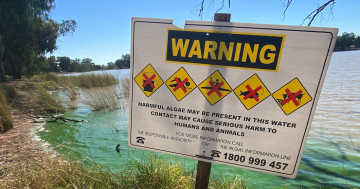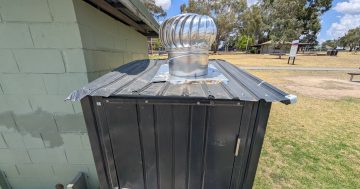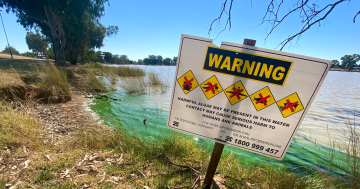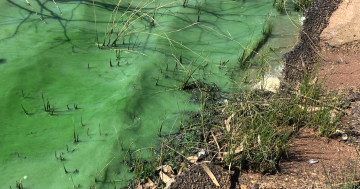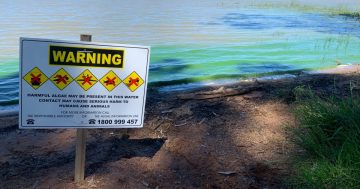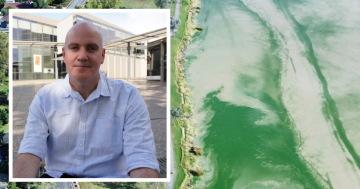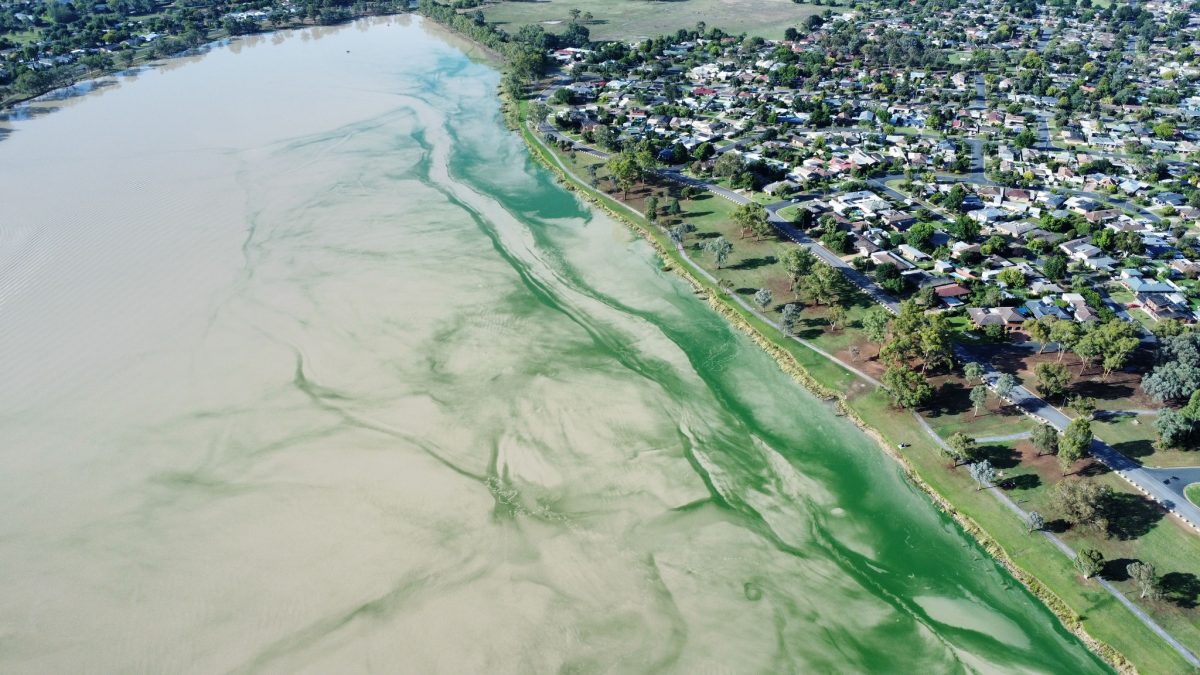
For the first time in years, Wagga Council has gone a full summer without declaring a code red for Lake Albert. Photo: Jesse McInnes.
For the first time in several years, Lake Albert has gone a full summer without a red alert being issued related to its blue-green algae (BGA), a potentially toxic bacteria that can cause skin irritation and other health problems for humans and animals.
Wagga Council says this a “positive” sign for its most recent effort to clean the lake, but critics warn that this does not mean it is free from BGA.
Recreational use of Lake Albert has been restricted for the past decade due to persistent BGA outbreaks.
Red alerts, which have been common over recent summers, prevent residents from undertaking recreational activities in which they may come into direct contact with the water (i.e. no swimming).
Wagga Wagga City Council (WWCC) has adopted several water cleaning trials to combat the BGA over the past three years.
Waterzyme, a natural enzymatic solution that works by disrupting the structural integrity of toxic algal species through a biochemical process, was the first product used by council (early last year). Despite a $150,000 price tag for the six-month period, council decided not proceed with the product.
“[An] independent scientific analysis which assessed Waterzyme’s performance at Lake Albert during the summer of 2023/2024… clearly demonstrated that Waterzyme was effective in reducing harmful algal bloom (HAB) volumes, particularly when applied at sufficient levels and with ongoing maintenance. That summer the Council, interested and invested members of the Wagga community, and Waterzyme worked hard together to achieve an amazing result,” a Waterzyme spokesperson said.
“While the recent ‘no red alert status was celebrated, it’s worth noting that it may have had something to do with the solid foundation laid by our treatment work the previous summer. Waterzyme was looking forward to building on this ecological momentum, but unfortunately was not given the opportunity to continue under the new incoming Council.”
The Council then tried the product Hydro2050, which has shown “positive” signs with no BGA-related red alerts being declared for the lake since the trial began in February.
“We did make it through this summer without getting any red alerts. So that’s a positive thing, but we will have to consider all the contributing factors to that,” WWCC Strategic Asset for Planner Parks and Recreation Ben Creighton said.
“This summer was a very different summer from the previous two, so we’ll be reviewing all that as part of the report that comes back to council.
“We’re nearly through the end of our six-month period, but at the moment, it’s still ongoing. We’ll complete a review in the next couple of months and then bring a report back to the council with the outcome of the trial from an indicative early point of view.
“It’s in recent years we’ve had a number of red alerts that have forced the council to put in public health warnings for the lake.
“It’s a positive sign, but we still need to review all the different aspects to see whether the Hydro 2050, by itself, was that factor.”
Mr Creighton said WWCC would continue to monitor the lake over the next couple of months to determine if it was the work of Hydro2050 that limited algae outbreaks.
If council is unsatisfied with the results, Mr Creighton said it would continue to look for an alternative solution.
In February 2025, Roger Gagliardi of the company Marine Easy Clean approached Wagga Council offering a product that he said would eliminate the bacteria’s internal food reserve and stop algal blooms from becoming a sludge, thereby preventing its rebirth.
While the council did not take up his offer at the time, he said it remained open.
“Just because there are no red alerts doesn’t mean the water is clean of BGA,” Mr Gagliardi said.
“We have successfully treated quite a number of council lakes in Western Australia and are active on some mining sites as well.
“What we do is, when there’s a problem in the water, which is usually a bacterial imbalance with cyanobacteria taking over and becoming dominant, it then blooms and can release toxins. What we do is put in our water cleanser block, which is simply a wax block, which is infused with trace elements that make bacillus bacteria multiply twice as fast.
“Our aim is to very quickly rebuild the amount of bacillus bacteria in the water, because once you do that, the bacillus starts to take over, and it works out on its own what a particular body of water needs, because it’s part of the natural process.
“We’d be happy to come to Wagga but they (WWCC) have not approached us at all.”







